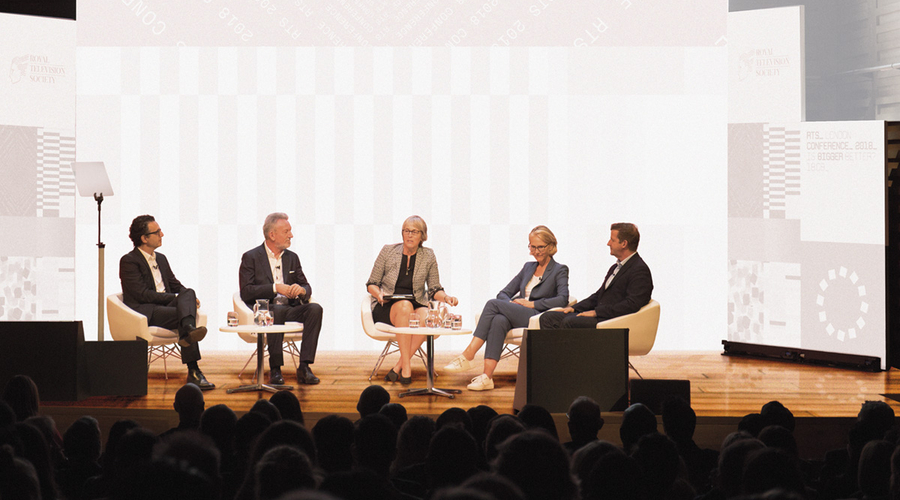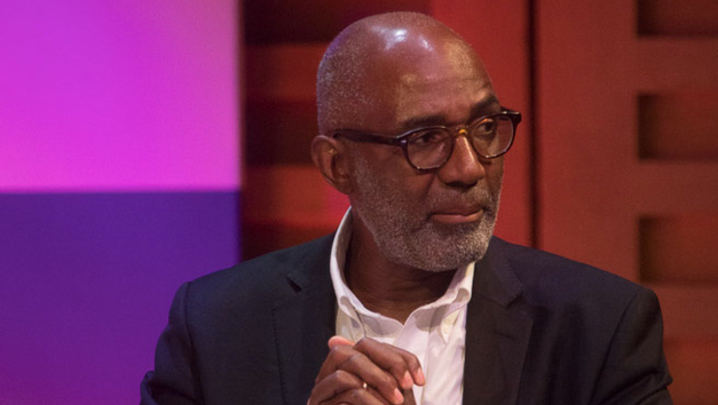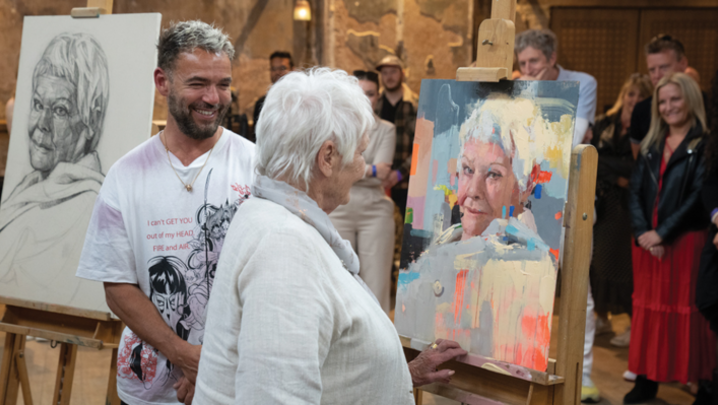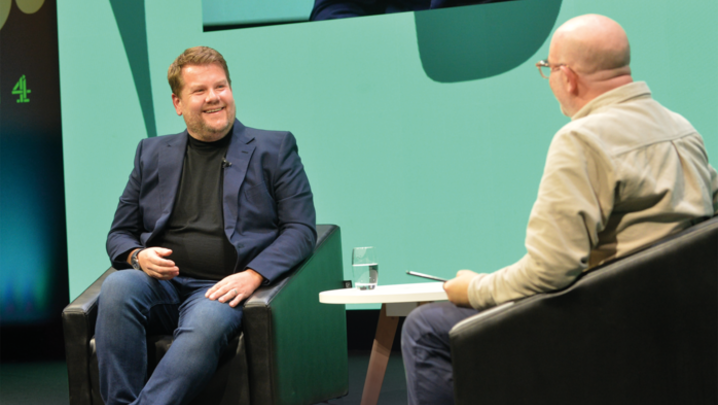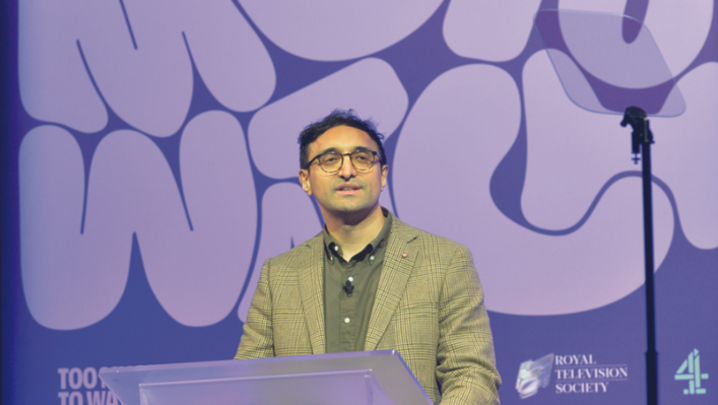Media companies are consolidating and seeking innovative alliances to take on the streaming giants. Matthew Bell logs on
Fings ain’t wot they used to be for the traditional television industry. Netflix and Amazon are already affecting viewing levels, with Apple and Google set to join Facebook at the feast. Will it be fangs for the memory for telly?
Faangs, an acronym for the US tech and media giants Facebook, Apple, Amazon, Netflix and Google, offer TV the modern way – streamed over the internet and watched when and where the viewer wants. Television, meanwhile, is lumbered with old-fashioned schedules.
The newcomers also have deep pockets. According to figures compiled by Deloitte for the RTS London Conference, Apple, Amazon, Alphabet (Google/YouTube) and Facebook dwarf the five largest traditional media companies, with Netflix not far behind.
Yet, as the audience in this opening session, “A full set of Faangs”, discovered, the linear television industry is not downhearted.
“This new money coming in is a positive thing,” argued All3Media CEO Jane Turton.
“A bigger portion of our revenue is coming from Netflix and Amazon, not yet Apple, [though] we’re going to see that change very quickly,” said Darren Throop, CEO of Entertainment One, which owns popular programmes such as Peppa Pig.
He offered some reassurance to traditional media companies: “The broadcasters, which have been our customers for ever, continue to be a very, very important piece of [our business].”
But, suggested session chair Kate Bulkley, is the global Faangs’ growth coming at the expense of local content? “These big guys want to have big stars and international themes,” she suggested.
Turton disagreed. “They’ve got a whole portfolio of content – some of their most successful shows currently are so-called ‘local’,” she pointed out, offering Netflix’s acclaimed Spanish-language heist drama La Casa de Papel as an example. “I don’t think local is out by any means – it’s about quality.”
“The world is full of partnerships and opportunities,” said David Abraham, the former CEO of Channel 4, who set up his own creative company, Wonderhood Studios, earlier this year.
He cited the cross-platform deal recently announced by Sky and Channel 4, under which the two broadcasters will share Formula 1 coverage and dramas such as No Offence and Tin Star, as a “really innovative moment. I think there are going to be many more like that.”
“The overall message,” argued Virgin Media CEO Tom Mockridge, “is that demand [for TV] is growing. “That’s creating all these opportunities and it’s terrific for the industry.”
These opportunities exist for the UK’s public service broadcasters, not just the Faangs. “The PSBs have been very innovative. Let’s remember iPlayer, ITV Player and All 4 – these services were out when Netflix was still posting DVDs in letterboxes,” said Abraham. “We should recognise that the British system has led into this change and can continue to do so.”
What we call the arms race for content is actually an arms race for talent
The panel turned to cord-cutting – where consumers cancel pay-TV subscriptions in favour of cheaper web streaming services – which some in the industry fear will cross the Atlantic from the US, where it has been wreaking havoc on cable TV companies’ revenues. “It’s not an issue,” insisted Mockridge. “People are continuing to buy linear pay-TV, people are continuing to watch PSB channels. And, in addition, they’ll buy the online services.”
As a producer, Turton said: “The biggest challenge for us is to get people to watch content. It sounds obvious but, certainly for a younger demographic, it is to get them off Instagram and into content. How do you do that? It must be about the quality of the content.
“Our challenge is to make sure our content is so unbelievably, desirably watchable that [viewers] will find it and watch it.”
“Our primary job as producers is to get the content into the hands of consumers,” said Throop. His company has a Peppa Pig direct-to-consumer subscription app and a YouTube channel, alongside the original TV programme.
“For a brand, we’re looking for exposure, eyeballs and engagement with the consumer. So, we extrapolate that same content across as many platforms as we can, [which] is very good for us,” he added.
The trend in the TV industry is for companies to bulk up, either through acquiring rivals or being bought themselves, to achieve economies of scale.
It is, indeed, better to be bigger in the TV industry, agreed Mockridge, “but it cannot be an end in itself”. He said that anti-trust laws were critical “to ensure that the market does work”, and to promote market-based outcomes that express “the choice and the will of the people”. He added that these laws were needed so that “new entrants” to the market “don’t get crushed”.
Mockridge, who described Virgin Media as a “biggish company”, suggested that “being a challenger is a great position to be. I like competing with BT because they’re so big and not very agile.”
Faangs had been buying up TV talent – was there a British actor of note who hadn’t appeared in a Netflix Original?, asked Bulkley. Were UK production companies the next item on their shopping lists? “It doesn’t look like it, does it?” conceded Turton. “For them, it’s about talent. I think that what we call the arms race for content is actually an arms race for talent. That’s what they’ve been concentrating on and they’ve been doing that aggressively over the past 18 months to two years.
“Will they go out and buy Endemol and [other] producing companies? I don’t think they need to.” All3Media itself is a large, global producer, owned by Liberty Global and Discovery.
“The model works very well for us,” said Turton. “Having big parents is helpful – it’s much easier to take a risk when you know you are well capitalised and of a size that allows you to fail.”
“Scale matters,” agreed Throop. “We have been fortunate enough to get to a size and scale where we’ve got a balance sheet that supports the risks we have to take as a company.
“We’d much rather be the consolidator than the consolidated. We’re focused on the arms race for the talent right now and the underlying creative idea. If you own [an] idea, develop and incubate that idea: that gives you a place in the marketplace.”
The key to a prosperous future for UK broadcasting, argued Mockridge, is “keeping the business competitive, keeping the ideas flowing, keeping these distribution opportunities pumping revenue into the UK and seizing those opportunities – it’s the muscle of competition that’s going to make the difference. Of course, it’s going to be challenging, but it’s also very exciting.”
Throop sounded confident about the future. “From a production and creative standpoint, people want to see ideas and stories that are relevant to them,” he said. “People in the UK are going to want to see UK stories. Regardless of whether the platform is app-based, whether it’s delivered globally by one company or whether it’s a bifurcated approach, where many different instances of the same content are served to the customer, the customer is going to, as always, seek out what they want.
“Overall, from a production standpoint, it’s only good news and will continue to be good news for us.”
Turton agreed with Throop: “Ultimately, the quality and the desirability of the content is the test. The tech obviously has to be there to allow them to access [the content], but people will find it and they will watch it, whatever the platform, because they know it’s good.
“They will test it, they will find it’s good and then continue to watch it.”
Session One, ‘A full set of Faangs’, was chaired by media commentator and journalist Kate Bulkley. The panellists were: David Abraham, founder, Wonderhood Studios; Tom Mockridge, CEO, Virgin Media; Darren Throop, President and CEO, Entertainment One; and Jane Turton, CEO, All3Media. The producer was Matt Baker.
TV in 2023
= By 2023, the number of all TV episodes with a 5 million-plus audience may decline by two-thirds to about 200
= UK SVoD subscriptions may rise to 35 million by 2023, spread among 19 million households
= There may be an average of three pay-TV subscriptions per household in the UK
= Viewers aged 50+ are likely to watch 15% of all television content on-demand
= Over the next five years, TV advertising spend is predicted to increase by 5%, and digital video advertising spend by 109%.
Source: Deloitte
Question & answer
Q
Is bigger better – how far will consolidation go?
A
Ed Shedd, Deloitte: Large companies are becoming even larger in order to super-serve their customers and you’ve got niche companies that are looking to do a small range of things really well – and there’s pretty much nothing in between.
A
Keith Underwood, Channel 4: The media market is one that definitely rewards economies of scale – you can see that at the moment [in] the vast amount of mergers and acquisitions activity. But I don’t think scale is a sufficient or necessary condition for success.
A
Marie Oldham, VCCP Media: For everyone bigger, there will be someone small that comes up from the bottom and disrupts.
A
Danny Cohen, Access Entertainment: In the UK, one of the big questions is: will the broadcasters be able to successfully come together to launch a shared SVoD service? Or is it too late?
Q
What will be the biggest shift in viewer behaviour?
A
Ed Shedd, Deloitte: Everyone we talk to [has] a millennial strategy; virtually no one we talk to has a strategy for the older generation, those over 55 – economic madness.
A
Marie Oldham, VCCP Media: People are now not afraid to watch a whole series of Netflix on a [mobile phone] screen – they don’t need a 46-inch TV any more.
A
Lindsey Clay, Thinkbox: A dramatic change tends to happen when a new technology emerges that meets an existing need in a much better way.… Actually, people’s viewing needs are being pretty well met by a variety of TV services that are available at the moment.

